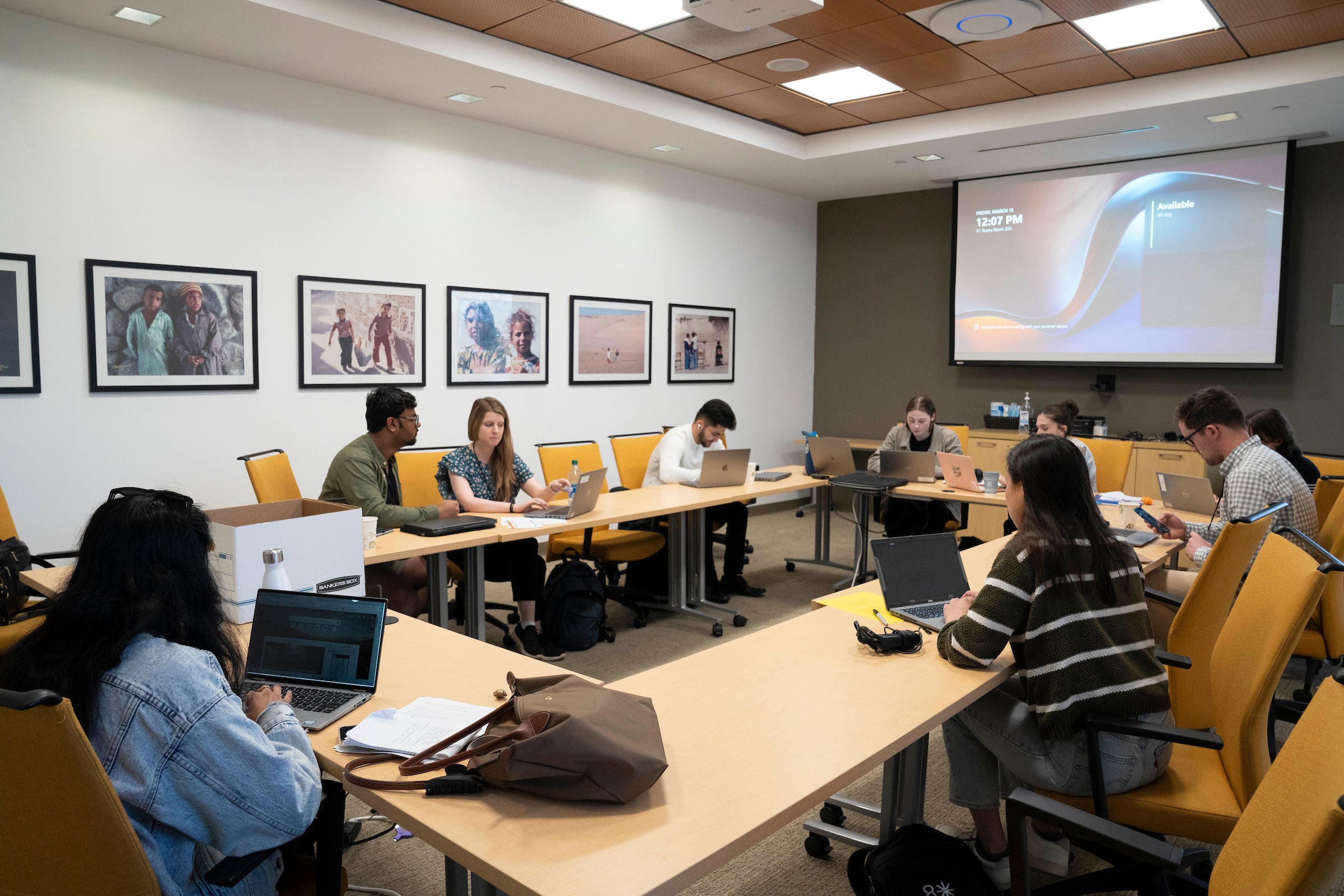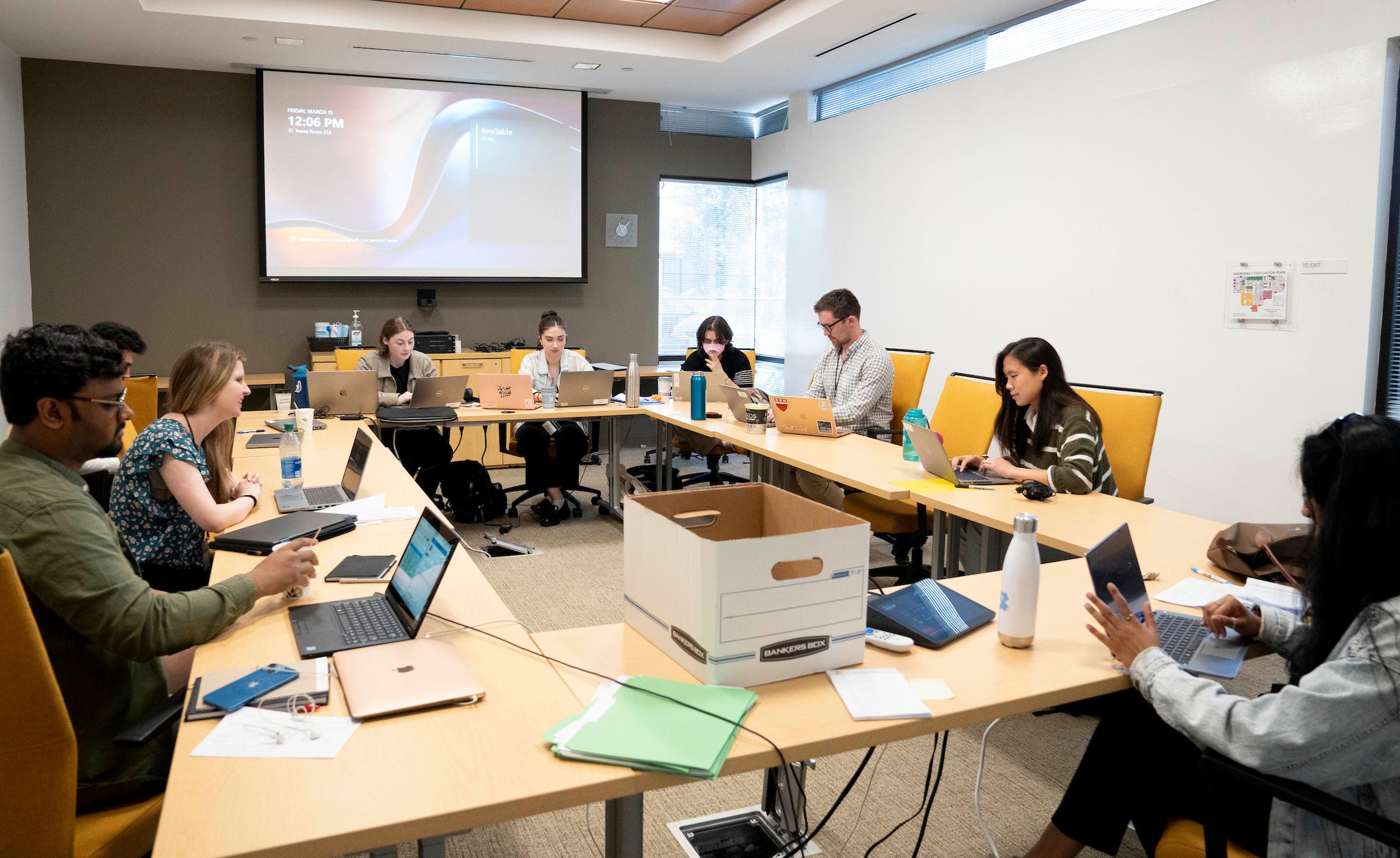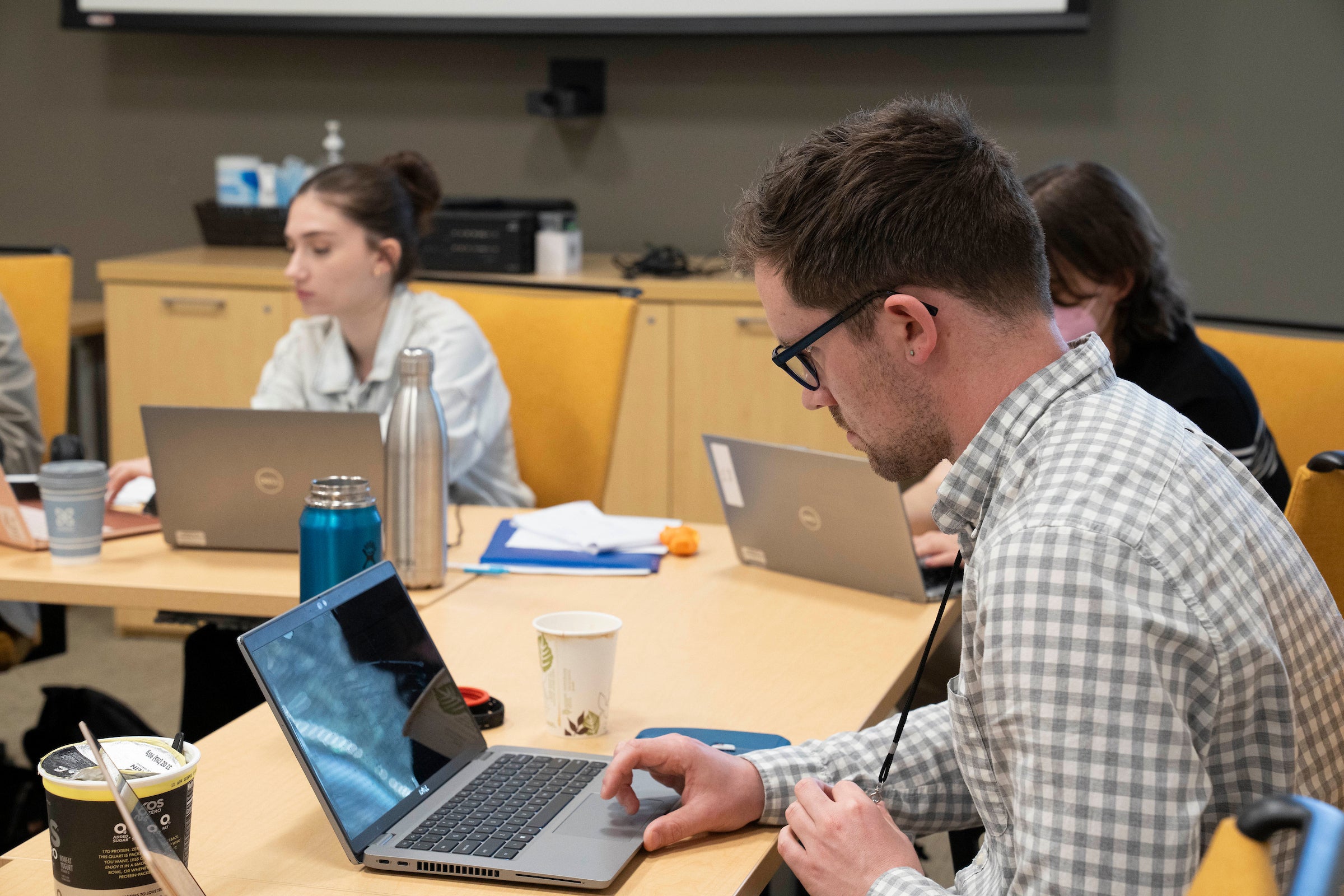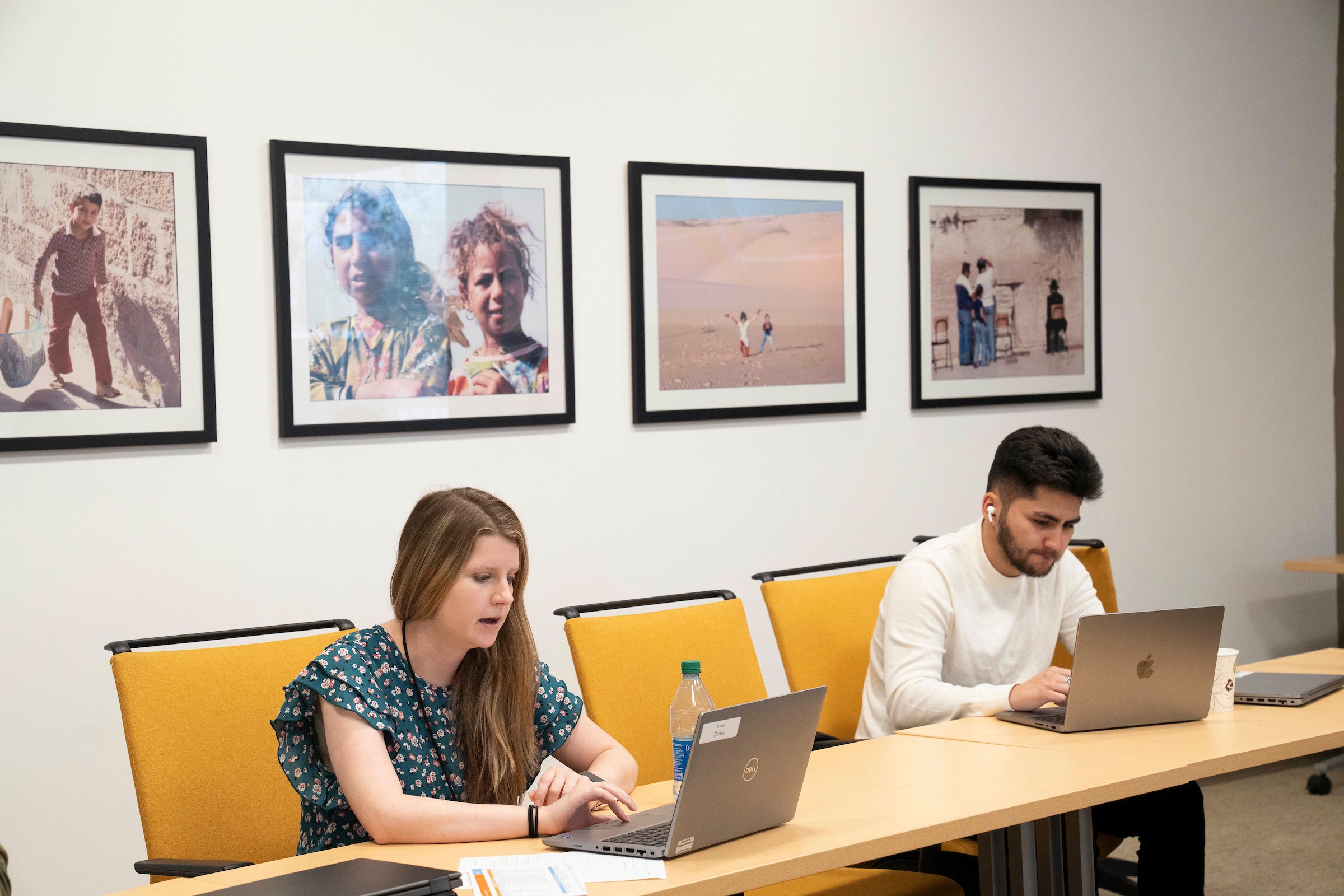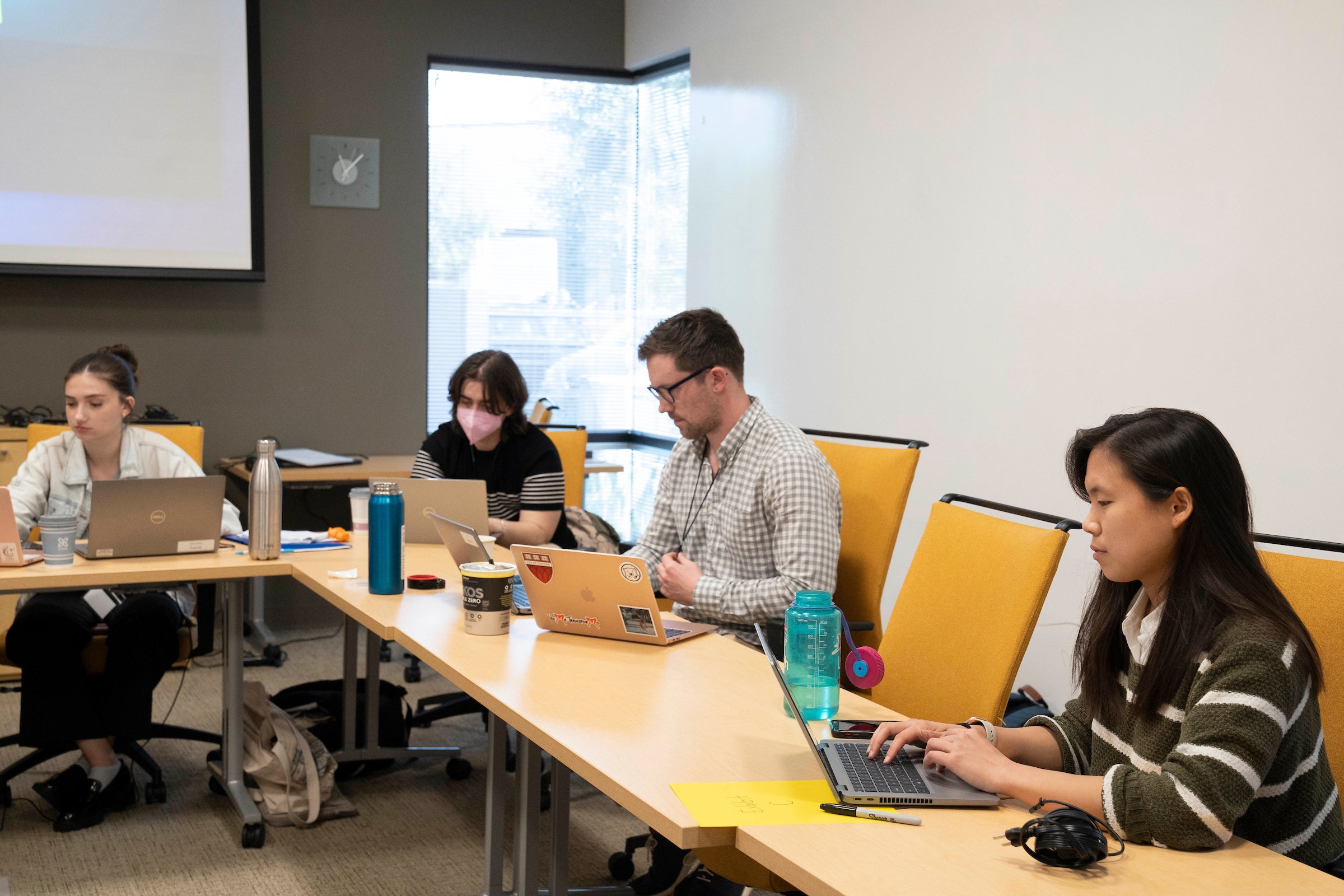Classes took a pause last week, but legal work continued for students participating in spring break pro bono trips. Groups traveled to San Diego, California and Clarksdale, Mississippi to complete projects with local organizations and learn more about the regions, coordinated and funded by the Office of Clinical and Pro Bono Programs.
Providing immigration services in San Diego
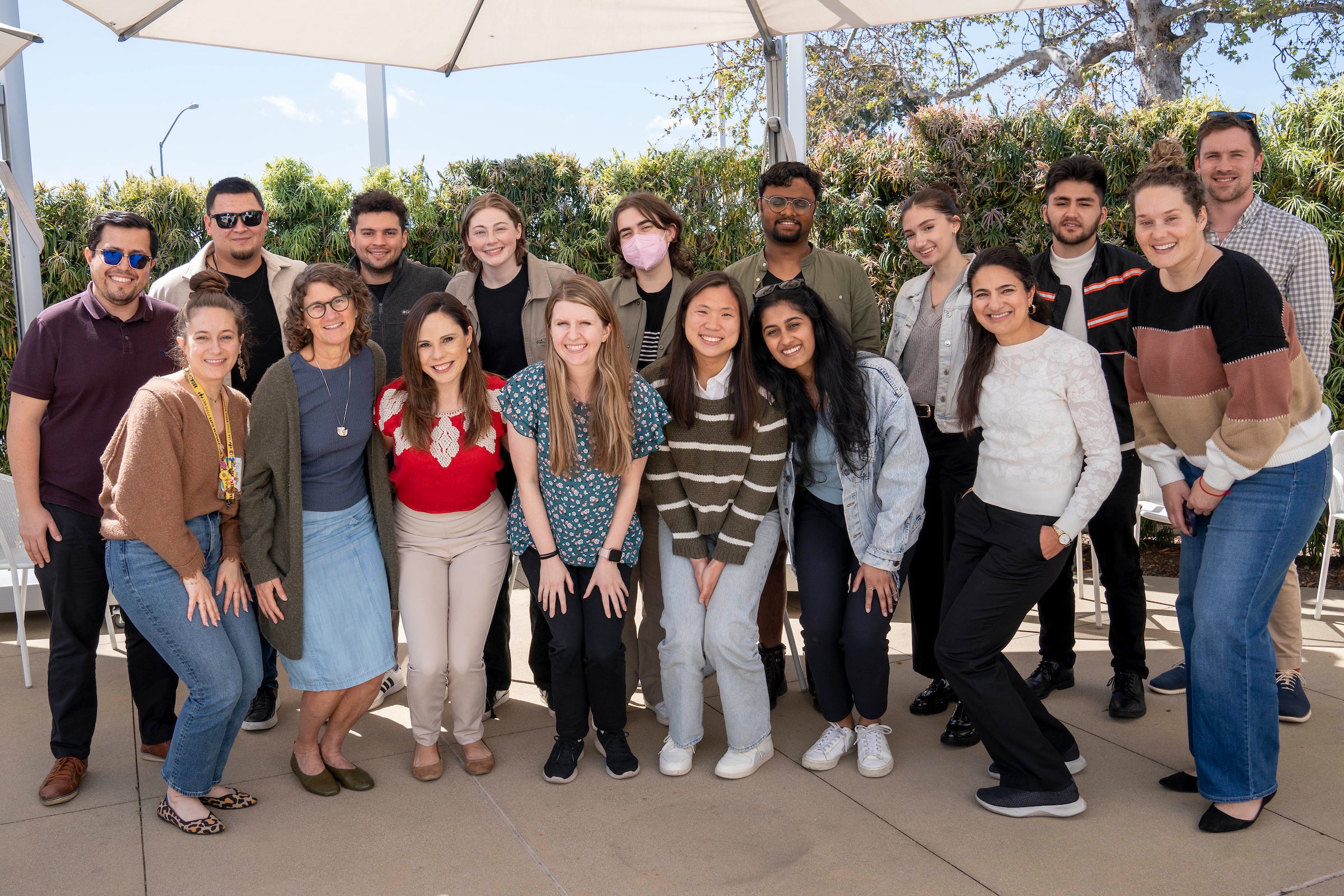
Photo courtesy of Luis Gonzalez
In San Diego, California, students spent the week diving into immigration work with Jewish Family Services (JFS). JFS offers free or low-cost legal assistance for immigrants and their families, and students jumped in to support their work on various applications and petitions. The Harvard Law School Immigration Project (HIP) and La Alianza co-sponsored the trip.
Over the course of five days, the students worked a total of 403 hours: about 10 weeks of work for a staff member. The team completed 50 work permit applications for shelter guests and asylum seekers receiving services from JFS’s Afghan Legal Services program, and 20 change of address forms for shelter guests who needed to change their address with immigration court.
Working into the evenings to serve members of the community who cannot take time off from work to renew their Deferred Action for Childhood Arrivals (DACA) status, the students helped clients with 7 DACA renewal applications. They also completed a cover letter for a complex family petition, a Special Immigrant Visa application and cover letter with legal arguments about eligibility, and legal research for four complex cases.
Strengthening partnerships in the Mississippi Delta
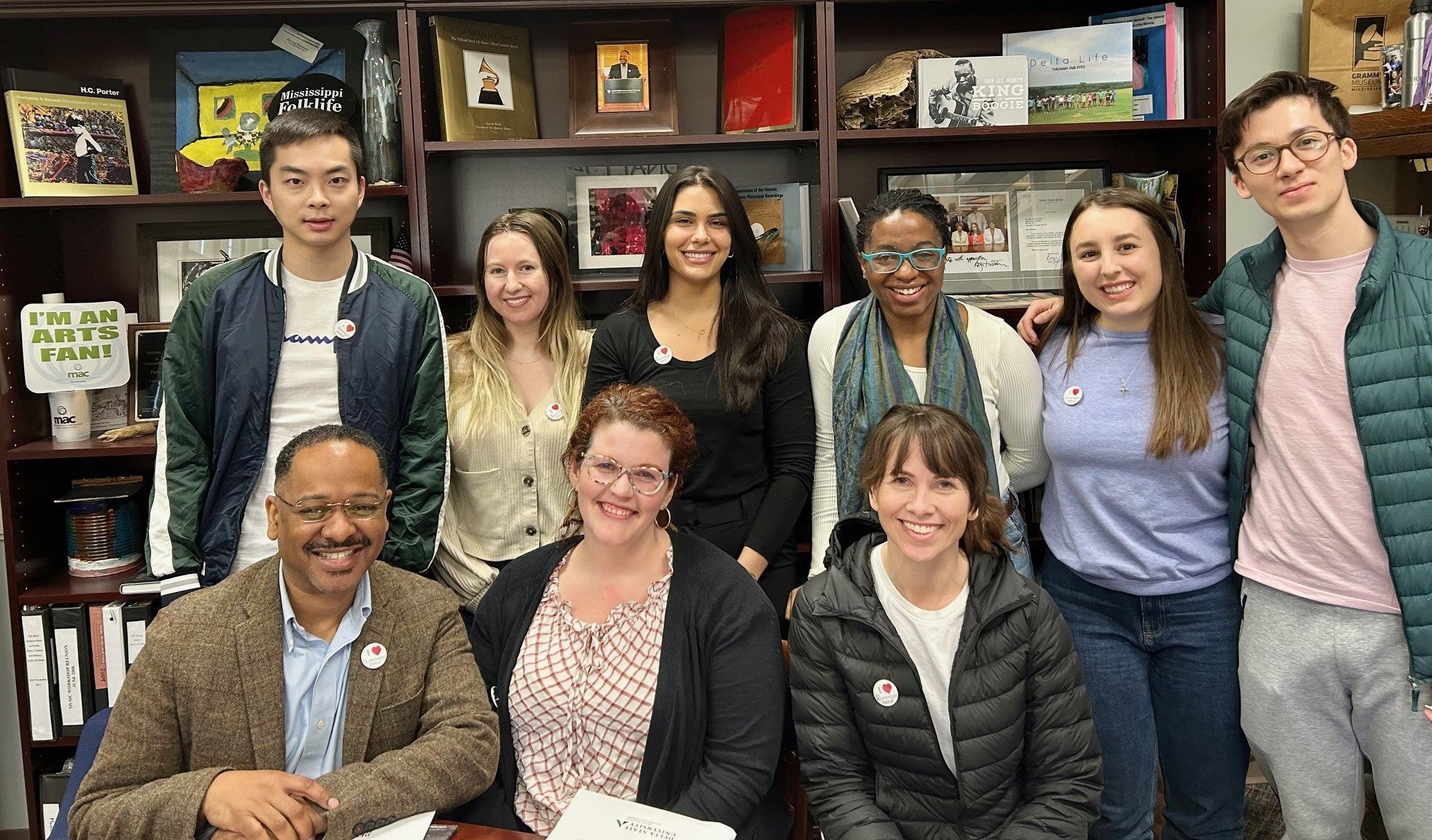
Photo courtesy of Delta Center for Culture and Learning
In partnership with the HLS student practice organization Mississippi Delta Project (MDP) and the Community First Research Center for Wellbeing and Creative Achievement (CREW) at the University of Mississippi, students headed south to Clarksdale, Mississippi to connect with partner organizations and individuals working to advance community development in the Mississippi Delta region. In MDP, students work in teams to support projects with a law or policy nexus; recent projects include efforts to advance rural broadband access, reproductive justice, food justice, and environmental justice in the region.
The trip built on the work of Jillian Morrison, the Delta Fellow who works closely with MDP, to support community participation in the broadband expansion process in Mississippi. Access to high-speed internet services, such as broadband, is vital for personal use, education, healthcare, and business. However, many Mississippians are still missing out on access to this critical resource. The state is now poised to receive $1.2 billion in federal funding through the Broadband Equity, Access, and Deployment (BEAD) Program to expand access in unserved and underserved areas. Making sure the funds are used effectively requires verifying and improving the maps that show which households and locations still need service. Affordability also remains a paramount concern so that once the infrastructure is there, the service is accessible to families at a reasonable rate.
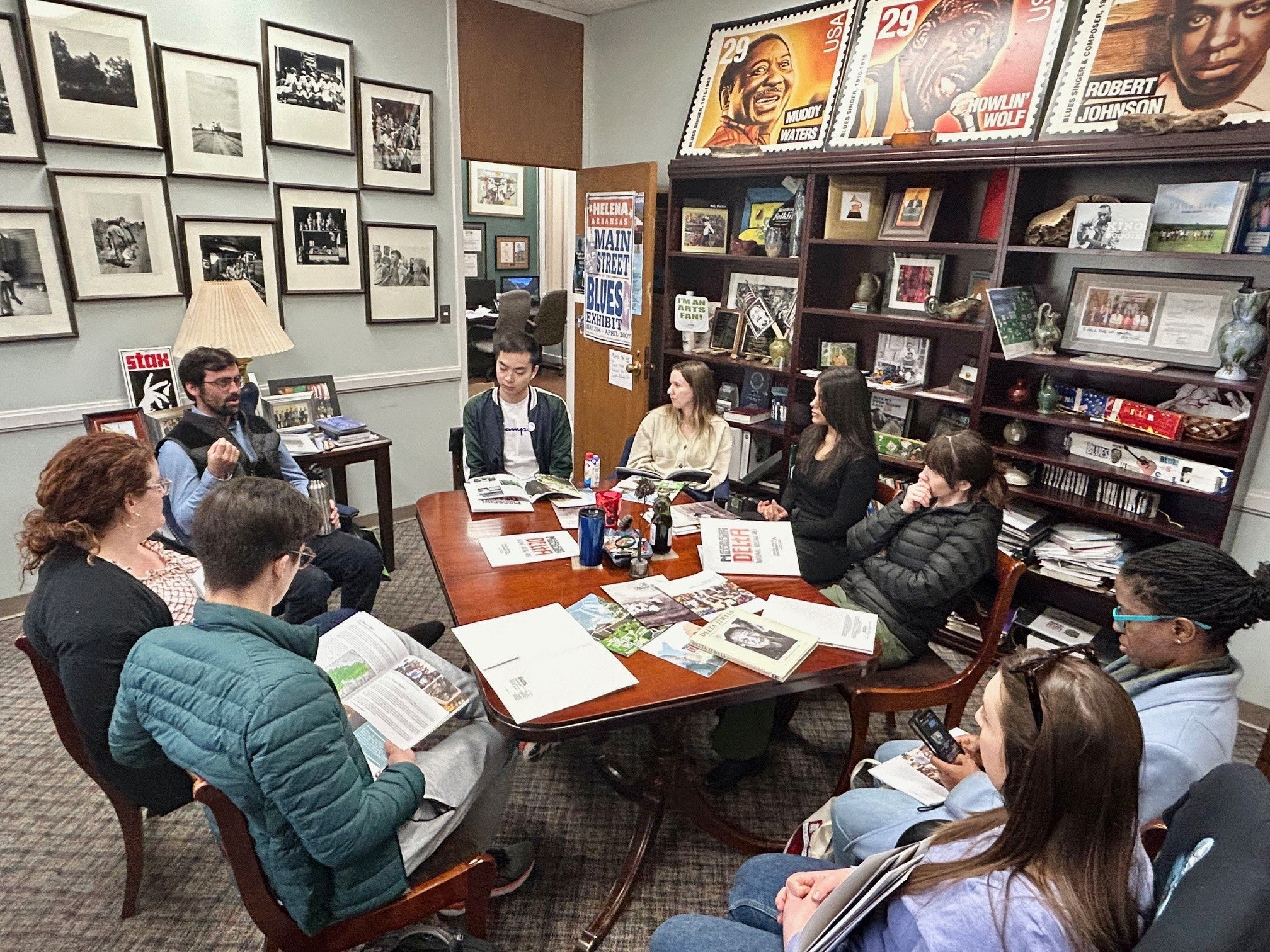
Photo courtesy of Delta Center for Culture and Learning
In March, students on the trip had the opportunity to meet with several on-the-ground organizations to learn more about their work and the importance of broadband access to community economic development. At the Delta Center for Culture and Learning, students had in-depth conversation with local partners about how the region’s cultural heritage influences local values and social networking practices. Students also heard directly from local businesses like the Young Family Farm and Winehouse about the importance of strong, reliable broadband in curating their on-farm experiences and conducting sales for their wines and other farm products. Similarly, while helping with some spring cleaning at their center, students learned how Griot Arts, an innovative community space providing creative opportunities to youth and the young at heart, relies on broadband to foster connection and learning. These tangible examples—as well as discussions with a local Internet Service Provider (Uplink), economic development leaders in Quitman County, and the Director of the Southern Rural Development Center—provided context for the work and critical data for further advocacy and implementation.
The students’ agenda made time for a variety of cultural experiences, from hearing blues music at local spots to visiting the National Civil Rights Museum. Connecting with the region’s civil rights’ history hit home the fact that much of the digital divide is rooted in the country’s history of racism and discrimination. Seeing the legacy of civil rights leadership that fought these injustices celebrated, through community events like Quitman County’s Mules & Blues Fest, highlighted the importance of strengthening broadband and connection to and within the Delta.
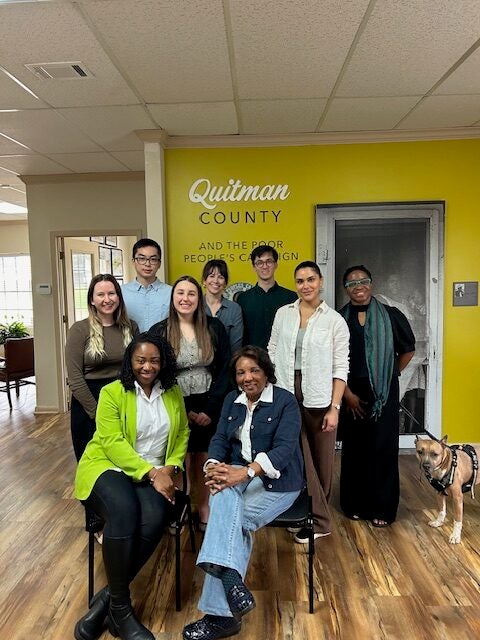
Photo courtesy of Jillian Morrison
Filed in: Pro Bono
Tags: Harvard Immigration Project, Mississippi Delta Project, pro bono
